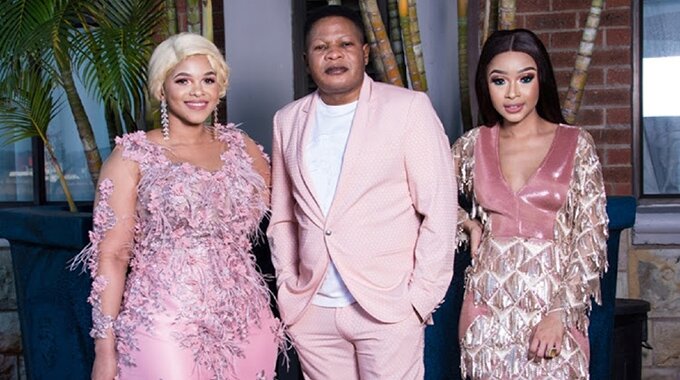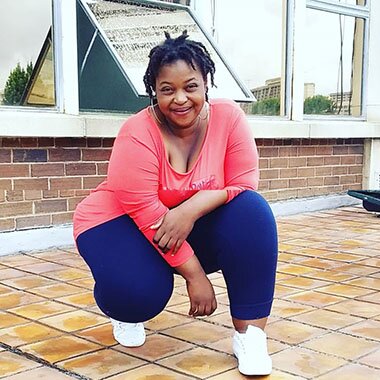Veronica Gwaze
AT some point, 21-year-old visually impaired Milton Kanyenze thought the world around him had collapsed. He was on the verge of giving up.
Life for the then Herbert Chitepo Secondary (HCS) student seemed to be characterized by a frustrating series of one challenge after another.
The HCS ordinary level student had been a soccer, volleyball and chess player before his life took a devastating twist.
Being brought up by unemployed parents who survive on menial jobs to feed the family, Kanyenze looked forward to helping his parents through sport. But as it would, fate appeared to have determined a different trajectory.
Advertisement
His sporting journey began when he was still in Grade 4. Then in 2014 it was abruptly halted by the onset of blindness.
“At first it was my left eye. I would tell my parents and friends that I could no longer see but none of them took me seriously,” he explained last week.
“Maybe it is because I could still do everything by myself and at that stage I even did not take it too seriously. So they must have thought it was one of those attention-seeking teenage stories.”
By that time, he was already the school senior soccer team’s first choice goal keeper.
Despite his condition, Kanyenze continued his sporting activities. It had become a passion and he could not contemplate abandoning the one thing he thought would deliver his family out of poverty.
He remembers his last match before blindness grounded him for good.
When the opponents discovered that he was blind in one eye, they nicknamed him “kondo” (the hammerkop).
With brown plumage and a head that looks like a hammer – hence its name – the hammerkop is a distinctive bird. Hammerkops are the smallest of the African stork. Superstition has it that Hammerkops are bad omens, and it is considered bad luck to harm them. It is partly this superstition that has kept the birds somewhat protected.
There has been a general debate with others claiming that the hammerkop is one eyed – hence his nickname. Zoologists, however, maintain that the bird has two eyes.
“I was heartbroken; I remember crying during the game that was to be my last match. I gave up.”
Advertisement
However, the worst was yet to come.
Three months later, the other eye also lost sight completely, eventually forcing him to drop out of school.
Due to poverty, it took time for his parents to take him to Parirenyatwa Hospital for consultations and seek medical help.
After detecting cataracts in both his eyes, he was referred to an eye specialist in Norton.
With his parents failing to afford the bus fare to and from Norton, one of Kanyenze’s friends helped him take up menial jobs to raise the money.
He reckons how, during his trip to Norton, he looked forward to coming back home with his eyesight restored.
“I felt so crushed when the specialist, after checking my eyes told me that it was too late and that there was no solution to my problem.
“The following days were hell and I planned taking my life.”
As if someone was sensing something, a well-wisher came forth and offered to take me for rehabilitation at a local centre.
The first month of his six months’ rehabilitation was tough as he was still processing living with total visual impairment.
Advertisement
It is during the rehabilitation programme that he learnt to do most activities on his own and to read Braille.
After the six months, he stayed at home until last year when he enrolled back at Hebert Chitepo Secondary, but only to be confronted by school fees challenges.
The situation at home became so severe that even his only sibling, Modester, dropped out of school. She is still out of school.
In November, he is set to write his Ordinary Level Examinations, targeting five subjects – English Language, Shona, Heritage Studies, Commerce and History.
Due to the Covid-19 induced national lockdown, Kanyenze is home like most other students.
While others are taking to Online lessons and other ways of keeping up, Kanyenze can neither afford Braille textbooks nor a device to access the Internet.
He is going through a tough time and wishes someone could help him with a laptop or smart phone so he can access online lessons as he prepares for his “O” level examinations.
“Finally I managed to go back to school and realizing that sport was a closed chapter for me, I devoted my entire energy to academics but Covid-19 brought fresh challenges.
“I am techno-savvy. I know how to use computers. So if I can get one, I know I will be able to study and cover up for lost time as I look forward to writing my examinations,” he said last week.
Kanyenze is not alone in this situation. Most blind students find themselves in the same situation as Braille textbooks are very expensive, making it difficult for one to afford a personal copy.
– HERALD








